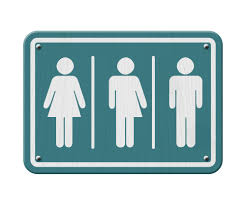Many of us won’t be around 20 years from now when NCAA member institutions combine all of the men’s and women’s teams into gender neutral programs. Something we would not mind missing out on.
 Unfortunately, with the way most college presidents seem to think these days, the elimination of “duplicative” or “redundant” programs could occur even sooner. So concerned about “inclusivity” they are.
Unfortunately, with the way most college presidents seem to think these days, the elimination of “duplicative” or “redundant” programs could occur even sooner. So concerned about “inclusivity” they are.
The NCAA took the first steps in that direction Monday when it pulled seven championships from North Carolina this year, including men’s basketball tournament games, men’s and women’s soccer, men’s and women’s tennis, women’s lacrosse and women’s golf tournaments.
All because the state legislature passed a law this year that prevents cities from passing laws allowing individuals claiming to be transgender to use the restroom of their choice. Supporters of the state law were concerned that sexual deviants would take advantage of unlimited access.
On Wednesday, the Atlantic Coast Conference piled on, further punishing the state by removing eight ACC championship events, including the conference football title game, which was to be played at Bank of America Stadium on Dec. 3.
“The ACC Council of Presidents made it clear that the core values of this league are of the utmost importance, and the opposition to any form of discrimination is paramount,” said John Swofford, conference commissioner.
Kami Mueller, a spokesman for groups reacting to the NCAA action, said, “I genuinely look forward to the NCAA merging all men’s and women’s teams together as singular, unified, unisex teams. Under the NCAA’s logic, colleges should make cheerleaders and football players share bathrooms, showers and hotel rooms.”
She was roundly attacked by the progressive media, of course, arguing that the NCAA has “no intention of getting rid of women’s locker rooms or abolishing women’s sports.”
Not yet, maybe. Think of how much money the universities could save by combining the programs. And how big a political statement the college presidents could make by doing away with gender specific programs.
Rightly or wrongly, they may have already started down that road.